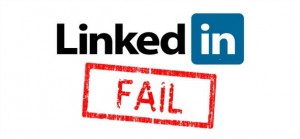March was Fraud Prevention Month. How fitting then, that I was a victim of fraud.
While I don’t know if this was in any way related to the Heartbleed bug, which apparently left over 60 per cent of all websites on the internet vulnerable to electronic eavesdropping of sensitive information, it’s a reminder that being diligent with online security is a two-way street. (Read The Globe’s explainer of how Heartbleed works and what passwords might be most at risk.)
I usually check my online bank accounts once a week. On Monday, March 24th I noticed a $1,945.18 charge from the previous week that I had no recollection of making. The transaction showed that a purchase had been made on Air Canada’s website with my RBC VISA credit card. For a minute, I thought that I had erroneously made a purchase while doing research for a recent travel story. Could I have been careless enough when I was comparing prices to have accidentally purchased a ticket?
After logging in to my profile with Air Canada’s site, there were no transactions on file. At that point I realized that much of my day would be spent sorting this out. But if my credit card had been compromised, I knew it was necessary to drop everything and handle this immediately.
First I called RBC and they instructed me to contact Air Canada’s customer service and get as much information as possible. This call to RBC only lasted three minutes, including hold time. That’s one great thing about my credit card customer service lines – they are fast.
Air Canada, on the other hand, is a different story. Over the years, I’ve had to call in to change flights or use credits and I honestly can’t remember a time when I waited less than 45 minutes to speak to a live agent. One day I’ll luck out and call during a period of normal call volumes. Since I knew I was in for a long wait time, I reached out to them on Twitter to see if there was any way to shorten the ordeal. No luck. While the Twitter interaction with Air Canada’s social media team helped ease my mind, it didn’t ultimately speed up the process.
After being on hold for more than 50 minutes, I gave Air Canada the confirmation number on the credit card transaction and they gave me the name booked on a return ticket from Montreal to Paris. The name wasn’t mine. I had indeed been compromised. The airline told me they would follow up with law enforcement, and that I should follow up with RBC.
My second phone call to RBC took 11 minutes, including hold time. I reported the incident and escalated it to their fraud department, who briefly interviewed me. The next day, the charge was reversed and by Friday of that week I had in my possession a brand new card with a new account number.
Since I had no way of knowing how my card had been compromised and whether this was an isolated incident, I immediately ordered new credit reports from Equifax and TransUnion. To get them right away, I paid for online access. The TransUnion report cost $30.85 while Equifax was $23.95. The price was worth the peace of mind. Nothing out of the ordinary showed up.
Once the scare and hassle were over, ironing out this fraud incident took two hours from beginning to end. With the minor aggravation of the Air Canada wait time, both the bank and the airline did a great job handling it.
But before you can start dealing with an incident of fraud, you have to detect it. How? At the very least you should read through every line of the transactions on all your monthly financial statements. I opt for electronic statements but prefer to check mine weekly. When you get used to it, it takes barely takes a minute, and you’ll have a rough idea of how much you owe. I find it also helps me stay on top of my finances.
In order to prevent fraud, here are some handy tips to keep in mind:
1.) Always cover your PIN, even if no-one is around. Some scams involve pin-hole cameras recording you enter your number
2.) Don’t use the same password or PIN for everything
3.) Regularly review all your financial statements for accuracy
4.) If your mailbox is easily accessible, don’t let mail pile up. Canada Post has a Hold Mail service you can use when away for extended periods of time
5.) Don’t discard mail that contains sensitive information or offers of credit without destroying it first
I have to imagine that if my card had more than just one fraudulent charge, those two hours could have turned into days. If you’re not regularly double checking your financial transactions, I highly recommend starting. An ounce of diligence each month might save you a pound of headache.
Preet Banerjee, a personal finance expert, is the host of Million Dollar Neighbourhood on The Oprah Winfrey Network and author of the new book, Stop Over-Thinking Your Money! Follow him on Twitter at @preetbanerjee
Read more on The Globe and Mail
(535)






